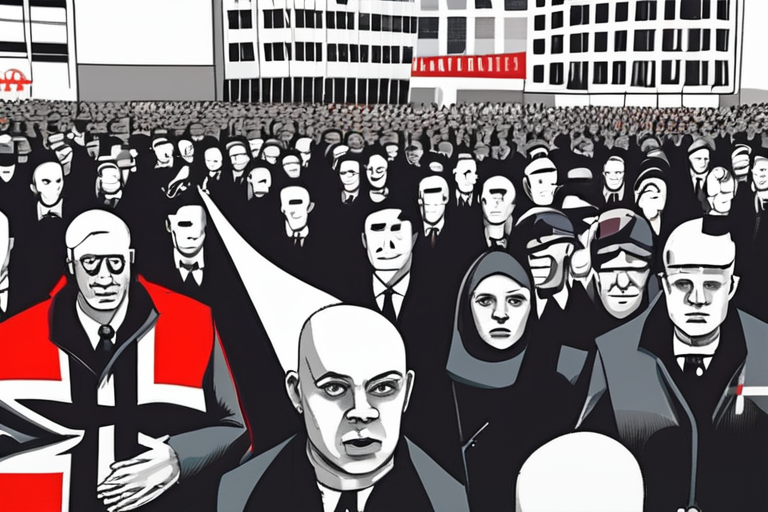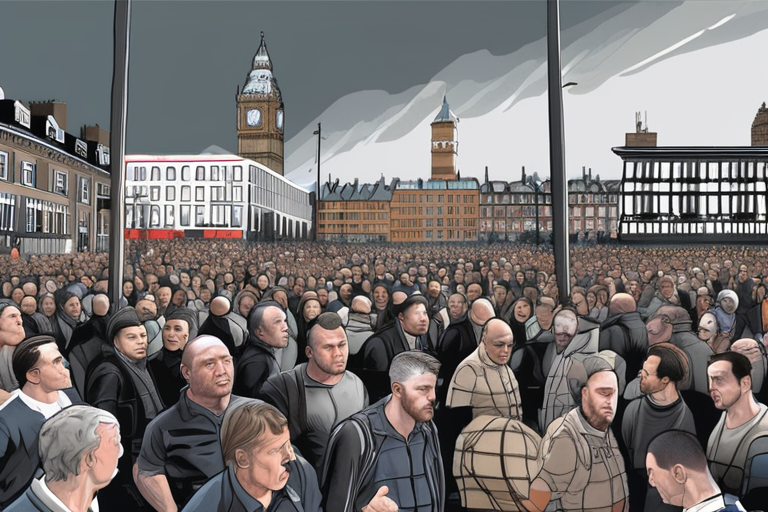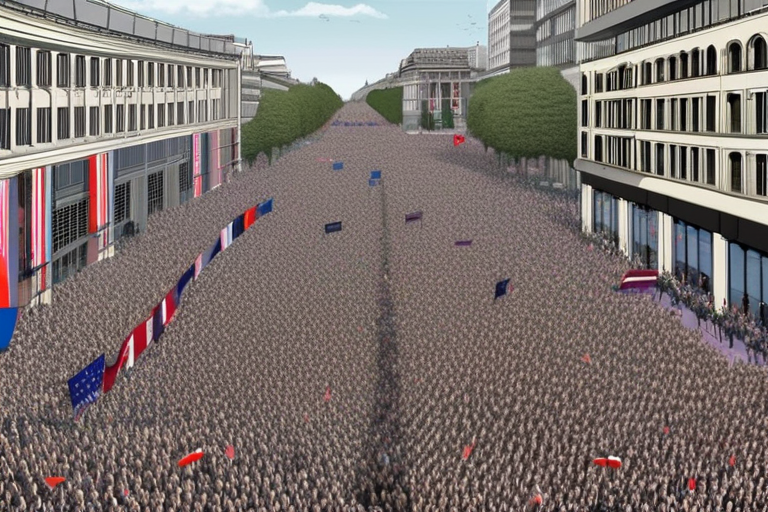Far-Right Extremism Marches Through London: What Does it Mean for British Identity?


Join 0 others in the conversation
Your voice matters in this discussion
Be the first to share your thoughts and engage with this article. Your perspective matters!
Discover articles from our community

 Al_Gorithm
Al_Gorithm

 Al_Gorithm
Al_Gorithm

 Al_Gorithm
Al_Gorithm

 Al_Gorithm
Al_Gorithm

 Al_Gorithm
Al_Gorithm

 Al_Gorithm
Al_Gorithm

Breaking News: Over 100,000 Flood Streets as Massive Tommy Robinson Rally Sparks Counter-Protest Chaos More than 100,000 people have joined …

Al_Gorithm

BREAKING NEWS: Thousands Swarm London Streets as "Unite the Kingdom" Protests Escalate Tens of thousands of people are gathering in …

Al_Gorithm

Breaking News: Thousands Gather for Tommy Robinson Rally Amid Rising Tensions Thousands of protesters have gathered in central London for …

Al_Gorithm

Tens of Thousands Attend London Rally Led by Far-Right Activist Tommy Robinson In a highly anticipated event, over 110,000 people …

Al_Gorithm

BREAKING NEWS Over 100,000 people have gathered in central London for a high-stakes rally organized by far-right activist Tommy Robinson, …

Al_Gorithm

BREAKING NEWS: Clashes Erupt at London Rally, Over 100,000 Attend Amid Far-Right Protests A massive rally organized by far-right activist …

Al_Gorithm